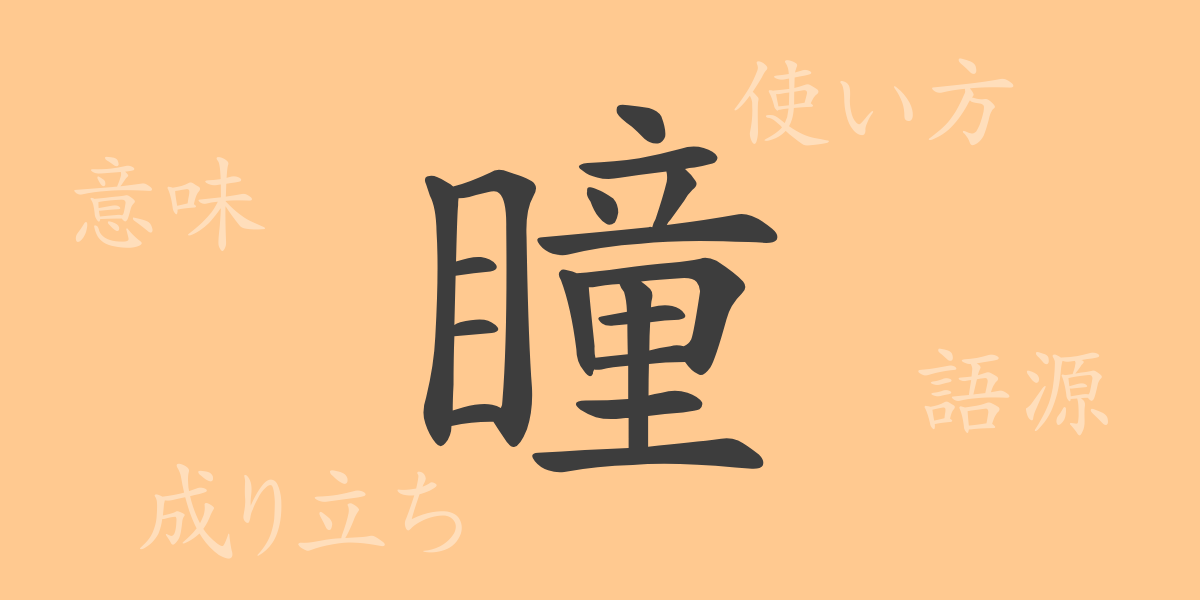In the Japanese language, numerous words symbolize emotions and beauty, among which ‘瞳 (ひとみ)’ holds a particularly captivating charm. This article focuses on the Kanji ‘瞳’, exploring its origins, contemporary usage, and the depth of its meanings, as well as its role in culture.
Origins of ‘瞳 (ひとみ)’
The term ‘瞳’ has long been a part of the Japanese language, relating to vision similar to the character for ‘eye’. Tracing back to ancient Chinese texts, this Kanji was used, illustrating the act of looking out into the world. Over time, the implications of ‘瞳’ subtly evolved, and today it is often used in more poetic and emotionally charged expressions.
Meaning and Usage of ‘瞳 (ひとみ)’
‘瞳’ commonly refers to the pupil of the eye but is also employed to describe the soul and emotions of a person. Expressions such as gazing into a lover’s ‘瞳’ suggest a deep connection focusing on the inner being. It is also frequently used in literature, poetry, and lyrics to convey scenes and emotions.
Reading, Stroke Count, and Radical of ‘瞳 (ひとみ)’
The Kanji ‘瞳’ is noted for its unique readings and structural components in Japanese.
- Readings: On’yomi ‘ドウ’, Kun’yomi ‘ひとみ’
- Stroke Count: 18 strokes
- Radical: ‘目部 (めへん)’—related to the eye
Phrases, Idioms, and Proverbs Using ‘瞳 (ひとみ)’
There are many idioms and proverbs involving ‘瞳’, which reflect human emotions or the beauty of nature. For example, ‘瞳を閉じる’ refers to closing one’s eyes to remember or feel something. ‘瞳を輝かせる’ describes the eyes sparkling with joy or excitement. These expressions demonstrate the delicacy and rich expressive power of Japanese.
Conclusion on ‘瞳 (ひとみ)’
The Kanji ‘瞳’ signifies more than just a part of the body; it embodies deep meanings associated with human feelings and spirituality. Used both in literature and daily life, it communicates the profound emotions we experience, continually evolving in its use through time. This article has hopefully deepened your understanding of the allure of ‘瞳’ and its significant role in the Japanese language.

























